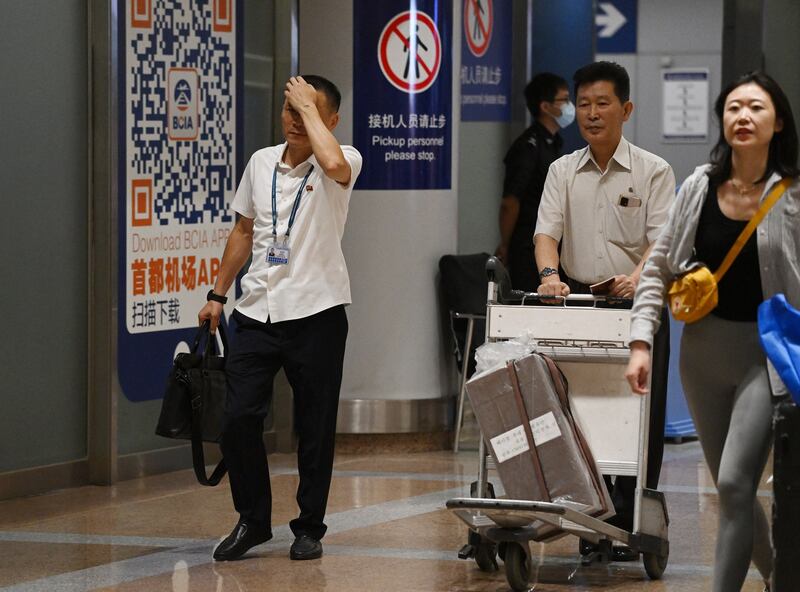North Korea has repatriated at least 700 of its citizens who were stranded in China and Russia since they were dispatched there by their government before the coronavirus pandemic, sources in those countries told Radio Free Asia.
Before COVID-19, the cash-strapped North Korean government had been sending workers to China and Russia to earn desperately needed foreign currency, but in January 2020 it closed down the international borders and forbade its citizens on the other side from returning.
The state-run Rodong Sinmun newspaper on Sunday reported that Pyongyang was now in the process of approving the return of many of the North Koreans still abroad, in what are the first large-scale repatriations of North Korean workers since the pandemic started.
Pyongyang is still concerned about the possible spread of COVID-19, and is requiring all who return home to be under strict medical surveillance in a quarantine facility for a week, the report said.
South Korean media outlets estimate that there are around 100,000 North Korean workers in China, and between 3,000 and 4,000 in Russia, even though U.N. sanctions mandate that all North Korean workers were supposed to have been repatriated by the end of 2019.
Sources told RFA that the first groups of people selected for repatriation include people accused of crimes, the sick and infirm, and employees who have fallen out of grace with their companies.

Delivery from Dandong
About 500 North Koreans have already returned from China’s Liaoning province, a resident there, who requested anonymity for security reasons, told RFA Korean on Monday.
The workers had been living in the Yanbian Korean Autonomous Prefecture and assembled in the city of Dandong, which lies across the Yalu River from North Korea’s Sinuiju, he said.
“Ten buses picked them up from a nearby hotel where they were staying and took them to customs,” the resident said. “The North Korean workers were moved three days ago after they received instructions from the consulate in Shenyang to assemble in Dandong.”
The Dandong Public Security Bureau assisted with the repatriation by lining up on the streets around the buses to prevent the North Koreans from fleeing and they also forbade onlookers from taking any pictures, the resident said.
“The buses just left after dropping the North Koreans at customs. It’s not clear whether they will travel across the Yalu River by train or bus or cross on foot,” he said. “I was not able to see very much because of the security guards, but I could tell that it was about 500 people when you consider all the buses.”
The resident said that a North Korean trade official told him that North Korea is repatriating students, the infirm and those accused of crimes first. In the next round, retired officials will be repatriated.
South Korea’s Yonhap News on Monday reported that it happened in a slightly different way, with local sources saying that the 10 buses transported North Korean personnel from Dandong directly to Sinuiju in multiple trips.
Return from Russia
South Korean media outlets also reported Monday that North Korean authorities sent an aircraft belonging to the state-run airline Air Koryo to the Russian Far Eastern city of Vladivostok to repatriate North Koreans there, following a previous such flight on Friday.
A resident of Vladivostok told RFA on Friday that 200 North Korean workers had been repatriated on the first flight.
“They were mostly officials and workers who had tried to escape but they were arrested and imprisoned for several months,” he said. “Also among them were those who were deemed to be troublesome by their companies, and the sick and infirm.”
The Vladivostok resident said that these types of people would also be on Monday’s flight.
“As far as I know the repatriation of North Korean workers is proceeding without advance notice, so company officials are concerned that those selected for repatriation will attempt to escape,” he said. “They try to manage the repatriation target by calming and comforting them with the best possible words of kindness.”
Translated by Claire Shinyoung Oh Lee. Edited by Eugene Whong and Malcolm Foster.
